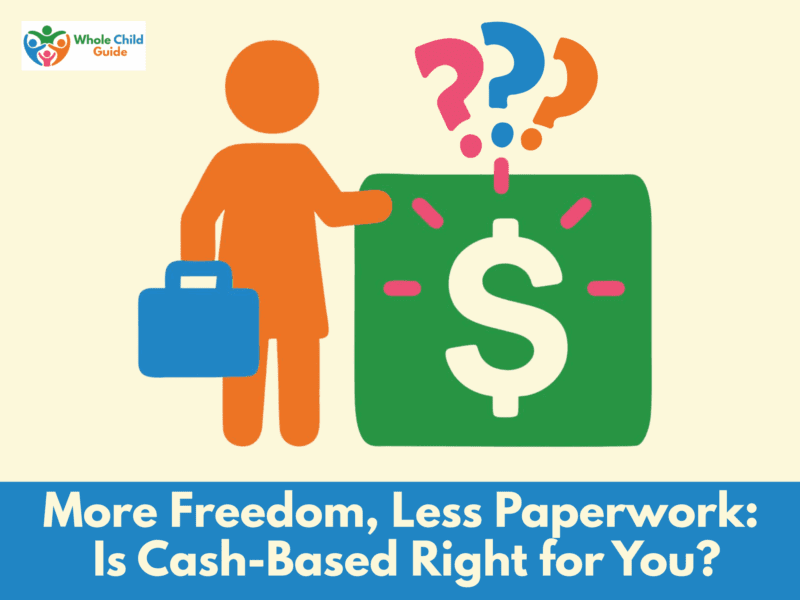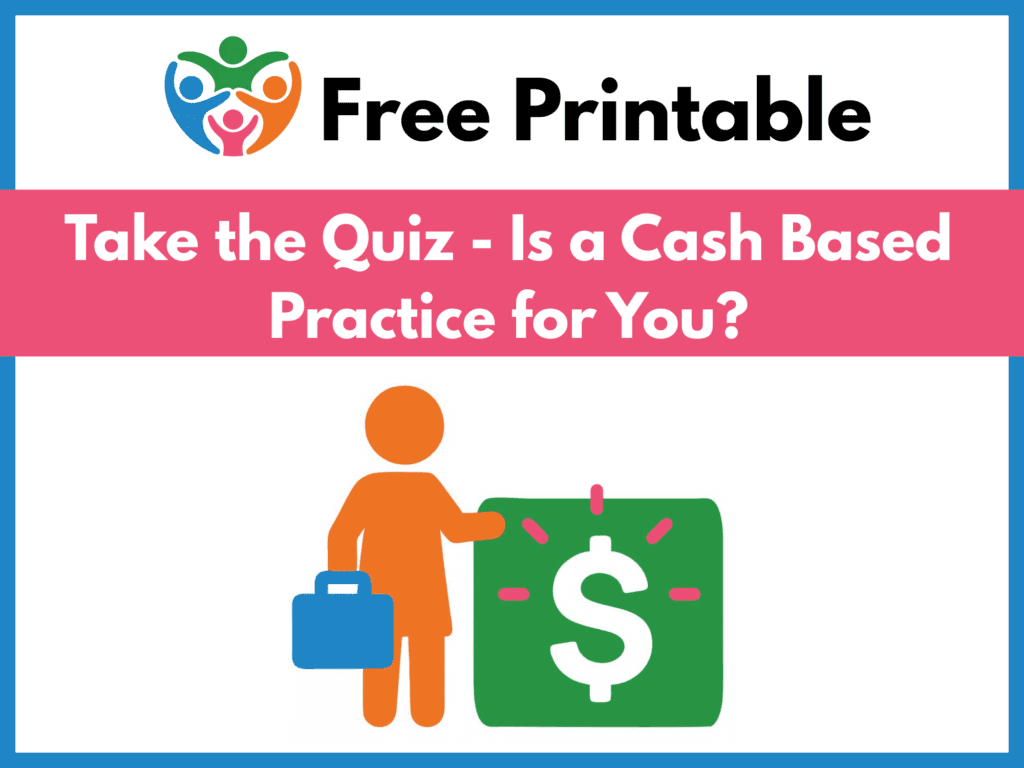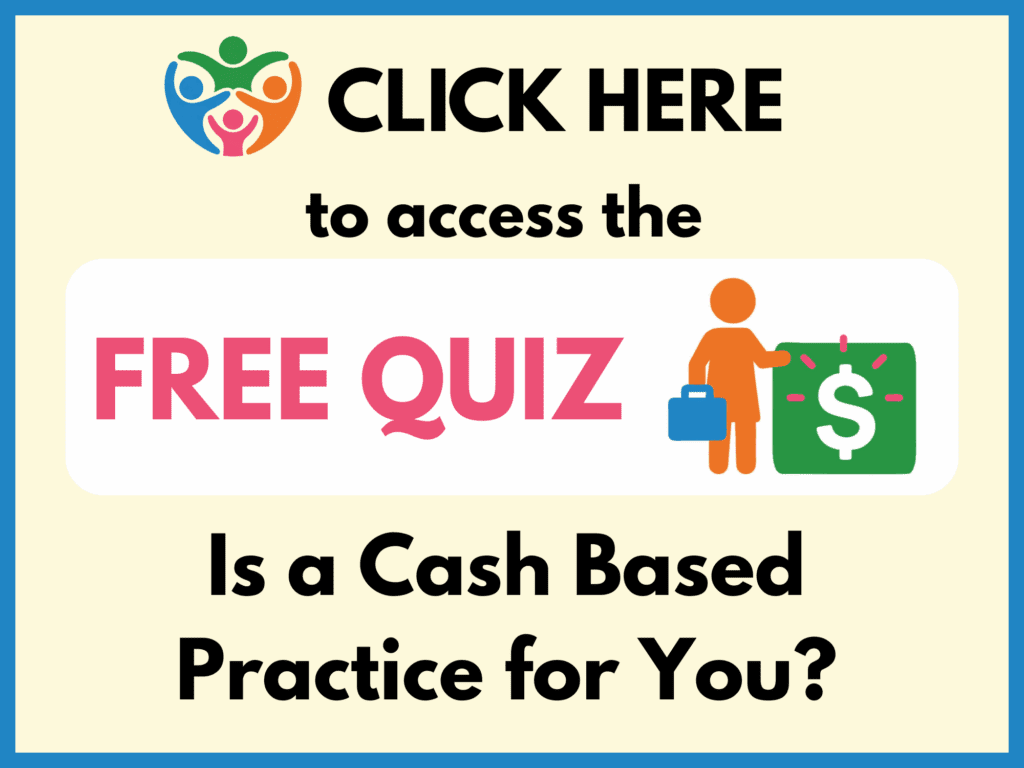
Many therapists dream of more freedom in their work, less paperwork, fewer denials, and more time to focus on clients. But the thought of stepping away from the insurance model can feel intimidating. At Whole Child Guide, our mission is to empower professionals to market themselves, grow their visibility, and connect with more clients. To help you decide is a cash-based practice right for you, we’ve created a free 5-question quiz. (You’ll find the link at the end of this post!)
What Is a Cash-Based Practice?
A cash-based practice is one where families pay directly for services, whether that’s by check, credit card, or another method. Instead of billing insurance companies, the therapist collects payment at the time of service. Therapists may still provide a receipt or “superbill” that families can submit to their insurance for possible reimbursement, but the key difference is that the therapist is not tied to insurance contracts, authorizations, or fee schedules.
This model shifts the focus from “what will insurance cover?” to “what services do families value and need most?” Therapists can design sessions, programs, and supports that go beyond the limitations of insurance billing codes—such as parent coaching, school consults, executive function training, sensory workshops, or group sessions.
In a cash-based practice, you gain the freedom to:
- Set your own rates based on your expertise and the value you provide.
- Offer innovative services that insurance may not recognize but families still want.
- Spend less time on administrative tasks like denials, prior authorizations, and lengthy documentation requirements.
- Build relationships directly with families, who often feel more invested when they are paying out of pocket.
The Benefits of Going Cash-Based
- Freedom to design your services: Offer workshops, parent consults, group sessions, or specialized interventions without worrying if insurance will approve them.
- Fewer administrative headaches: Less time on paperwork, phone calls, and denials means more time for client care.
- Control over your income: You set your rates and don’t have to accept low reimbursements.
- Closer client relationships: Families paying directly often feel more invested in the process.
The Challenges to Consider
- Client affordability: Not every family can pay out of pocket. You may need to market to specific communities or offer flexible options.
- Marketing is essential: Without insurance sending clients your way, you’ll need strong visibility—online presence, networking, and clear messaging about your services.
- Variable income at first: It may take time to build a steady client base.
Who Can Succeed in Cash-Based Practice?
- Therapists in areas with higher median incomes.
- Professionals offering niche or specialty services (feeding therapy, handwriting, executive function coaching).
- Clinicians who are comfortable with marketing and explaining their value.
- Therapists who want to build side hustles outside of traditional insurance-based work.
Questions to Ask Yourself Before Deciding
- Do I want more autonomy or more stability?
- Am I willing to learn how to market myself and my services?
- Do I have a financial cushion to handle slower months while I grow?
- Is there a demand in my area for the type of services I want to offer?
- What specialty could I focus on to make me stand out?
- Could I offer some of my services online to reach families outside my immediate area?
Take the Free Quiz to Find Out
Still not sure if a cash-based practice is right for you? Our free 5-question quiz will help you get clarity.



